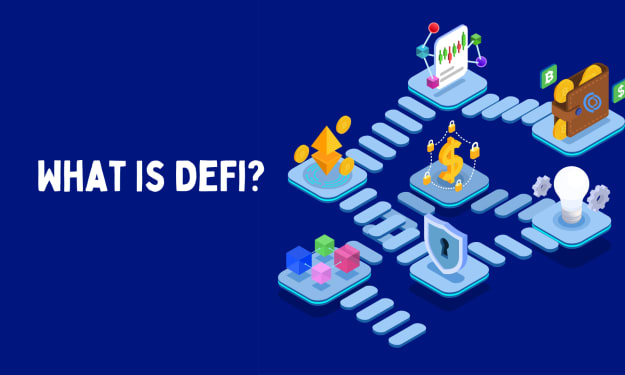
What is Blockchain
Blockchain technology has the potential to revolutionise a wide range of industries by providing a secure and transparent way to store and transfer data. Some potential future uses of blockchain technology include:
Supply Chain Management: Blockchain can provide a tamper-proof record of all transactions within a supply chain, allowing for greater transparency and efficiency.
Banking and Finance: Blockchain can enable faster and more secure financial transactions, as well as the development of new financial products and services
Healthcare: Blockchain technology has the potential to make a big impact on Healthcare. Blockchain can be used to securely store and share patient data, making it easier for doctors and researchers to access the information they need to make better decisions. This can help to improve patient outcomes, reduce costs, and speed up the development of new treatments and therapies.
Identity verification is another area where blockchain technology has the potential to be transformative. Blockchain can be used to create a secure and decentralised system for verifying identity, which could be used for voting, banking, and other applications. This can help to increase security, reduce fraud, and make it easier for individuals to prove their identity in a variety of contexts.
In addition to these uses, blockchain technology is also being explored for a wide range of other applications. For example, it can be used to securely connect and manage the data from IoT devices, enabling the creation of new applications and services. It can also be used to create a tamper-proof and transparent record of the ownership, usage, and licensing of digital assets such as music, videos, and software.
While blockchain technology has a lot of potential, it's still relatively new and untested in many industries. It's also important to recognise that like any new technology, there may be challenges and limitations to overcome before it can fully realize its potential. However, the future of blockchain technology looks bright, and it's likely that we will see more and more companies and organisations embrace this innovative technology in the coming years.
Is blockchain secure ?
Blockchain is considered to be a very secure technology due to its decentralised and distributed nature, and the advanced cryptography used to secure transactions. Some of the key security features of blockchain include:
Decentralization: Blockchain is a decentralised system, meaning that transactions and records are spread across a network of computers, making it more resistant to failure and manipulation.Immutable: Once a block is added to the blockchain, the data it contains cannot be altered, making it tamper-proof.
Cryptography: Blockchain uses advanced cryptography to secure transactions and ensure that they cannot be tampered with. Private keys are used to digitally sign transactions, providing a secure way to identify the sender and prevent unauthorised access.Transparency: Blockchain uses a public ledger system, which allows anyone to view and verify transactions, increasing trust and accountability.
Smart Contracts: Blockchain enables the creation of smart contracts, which are self-executing contracts with the terms of the agreement between buyer and seller being directly written into lines of code. Smart contract can be used to secure the transfer of assets with complex rules.However, it is important to note that no technology is completely secure and there are potential security risks associated with blockchain. For example, if a private key is stolen or lost, the assets associated with that key may be compromised. Additionally, smart contracts can be vulnerable to bugs and errors, which can potentially lead to security issues.
Overall, while blockchain is considered to be a very secure technology, it's important to remember that security is an ongoing process and requires continuous monitoring and improvement.
How does a blockchain works?
A blockchain is a decentralised, digital ledger that records transactions across a network of computers. It uses cryptography to secure and verify transactions as well as to control the creation of new units of a particular cryptocurrency. Each block in the chain contains a number of transactions, and every time a new transaction occurs on the blockchain, a record of that transaction is added to every participant's ledger. The decentralised database managed by multiple participants is known as a distributed ledger.
Blockchain Vs Bank
Blockchain and banks are both used for financial transactions, but they function in very different ways.
Decentralisation: Banks are centralised institutions, meaning that all transactions and records are controlled by a single entity. Blockchain, on the other hand, is a decentralized system, meaning that transactions and records are spread across a network of computers.
Transparency: Banks typically keep records of transactions private and only share them with authorised parties. Blockchain, however, uses a public ledger system, which allows anyone to view and verify transactions.Security: Banks use a variety of security measures to protect their clients' information and transactions, such as encryption and multi-factor authentication. Blockchain uses advanced cryptography to secure transactions and ensure that they cannot be tampered with.
Intermediary: Banks act as intermediaries in financial transactions, meaning that they facilitate the exchange of money between parties. With blockchain, transactions can be made directly between parties without the need for an intermediary.Speed: Transactions through traditional bank can take several days to be completed, while transactions on blockchain can be done in just a few minutes.
Cost: Traditional banks charge fees for their services, such as account maintenance fees and transaction fees. Blockchain transactions, on the other hand, typically involve lower fees or no fees at all.While both blockchain and banks have their own advantages and disadvantages, blockchain is still in a relatively early stage of development, and it's likely that the technology will continue to evolve and improve over time.
Blockchain Vs Bitcoin
Blockchain and Bitcoin are closely related, but they are not the same thing. Here are some key differences between the two:
Purpose: Bitcoin is a digital currency that uses blockchain technology to facilitate secure and transparent financial transactions. Blockchain, on the other hand, is a general-purpose technology that can be used for a wide range of applications beyond just digital currency.
Structure: Bitcoin is a single, specific application that runs on top of a blockchain network. Blockchain, on the other hand, is the underlying technology that enables the creation of decentralised and distributed digital ledgers.Consensus mechanism: Bitcoin uses a consensus mechanism called "Proof of Work" (PoW) to validate transactions and add new blocks to the blockchain. Blockchain, however, can use other consensus mechanism such as Proof of stake (PoS) and Delegated Proof of stake (DPoS)
Token: Bitcoin has its own unique token (BTC) that is used as a form of digital currency. Blockchain, on the other hand, does not have a built-in token and can be used to create and manage any type of digital assets, such as tokens or smart contracts.Focus: Bitcoin is primarily focused on providing a decentralised and secure way to store and transfer value. Blockchain, on the other hand, has a broader focus and can be used for a wide range of applications beyond just digital currency.

In summary, Bitcoin is a specific application that uses blockchain technology, while blockchain is a general-purpose technology that has many potential uses beyond just digital currency.
Advantages
The main advantage of blockchain technology is its decentralised nature, which makes it resistant to tampering and hacking. Transactions on a blockchain network are recorded on multiple computers, making it difficult for a single entity to alter or delete them. This allows for increased transparency and security in areas such as finance, supply chain management, and voting systems.
Another advantage of blockchain is its ability to facilitate smart contracts, which are self-executing contracts with the terms of the agreement between buyer and seller being directly written into lines of code.
Disadvantages
On the other hand, one of the main disadvantages of blockchain technology is its scalability. As more transactions are added to a blockchain network, it can become slow and unwieldy. Additionally, the anonymity provided by blockchain can be a disadvantage in certain industries, such as finance, where regulators need to know the identities of parties involved in transactions to prevent money laundering and fraud.
Finally, Blockchain is still a relatively new technology and is not yet fully understood or regulated. This lack of understanding can make it difficult for companies to use blockchain in a compliant manner.
About the Creator
Surya
I really enjoy and adaptive to learning new things and constantly seeking out new learning opportunities. I am exploring domains of Web 3.0 and Blockchain Technology. Currently learning how to build in Web 3.0 ecosystem.





Comments
There are no comments for this story
Be the first to respond and start the conversation.